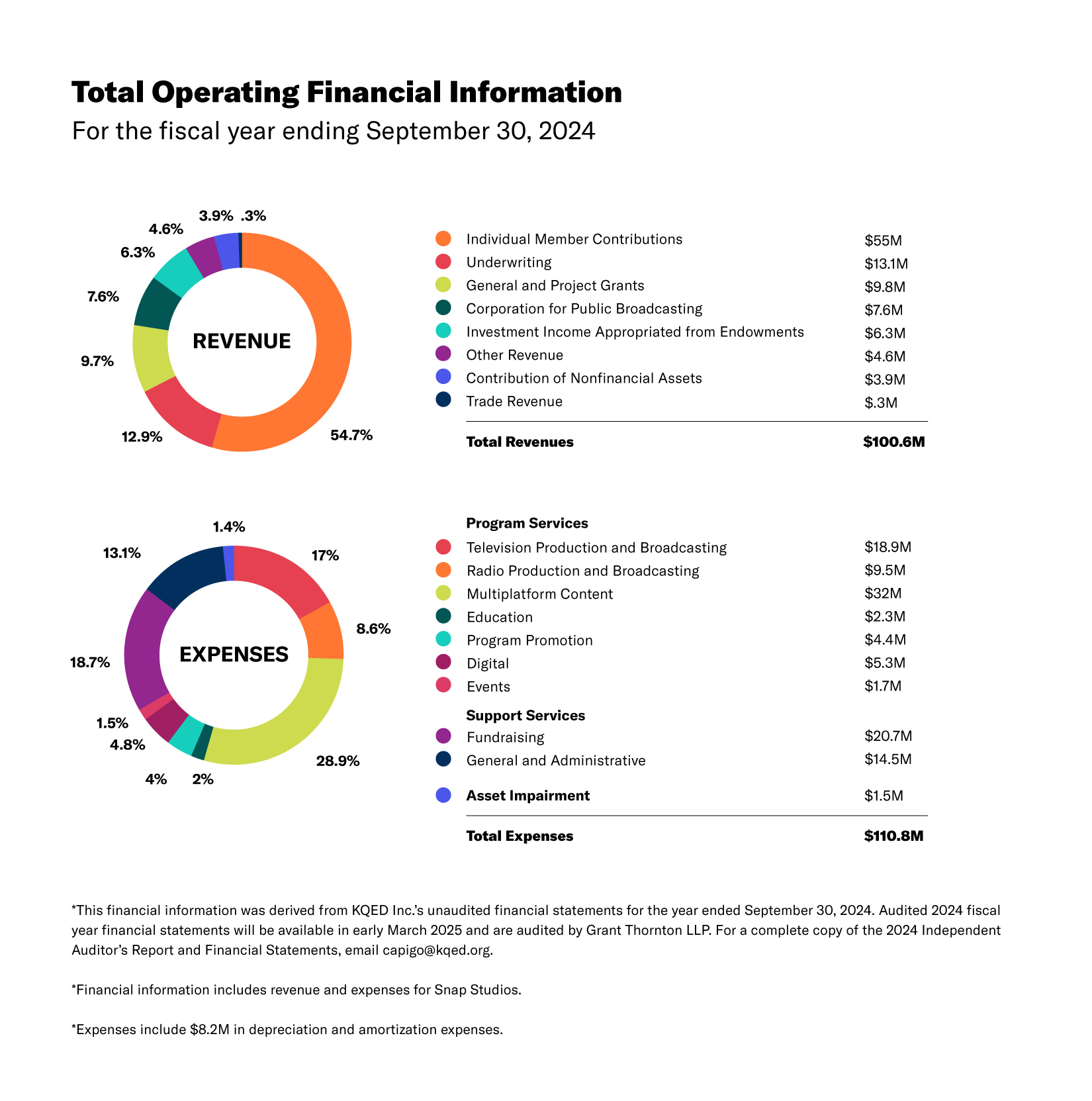
Report Sections
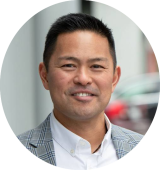
2024 marked the 70th anniversary of KQED’s first television broadcast. The station’s founders, journalists Jim Day and Jonathan Rice, were trailblazers whose bold, creative aspirations helped shape public media. They pursued their aspirations because they believed in the power of media not just to entertain, but to inform and educate.
Day and Rice wanted to create a space on the television landscape that offered diverse perspectives, promoted civic education and engagement and supported the arts. They set out to prove that public media could be a force for the common good in a time similar to the one we live in now — one of significant change and upheaval politically, socially, economically and culturally.
Today the media landscape is one of abundant content and choice, but KQED remains at the forefront of public media. As you’ll find in this 2024 Local Content and Service Report to the Community, we serve our Bay Area audiences by continually innovating the ways we deliver news, information and programming while staying true to our founders’ original vision of putting media into action for the public good.
You’ll learn how our news team expanded election coverage and increased access to information and context for every race on Bay Area ballots; how we’re leading the California Newsroom, a statewide editorial collaboration of public media news organizations to strengthen and amplify journalism throughout the state; and how we’re utilizing podcasts to present distinctive storytelling and journalism in series like On Our Watch, which exposed abuse and cover-ups in California’s prison system, and Snap Judgment, which made important contributions to the debate over capital punishment.
You’ll also find highlights of how we uplifted the local restaurant industry with programs such as Beyond the Menu, a digital food series that celebrates the Bay Area’s rich culinary heritage by uncovering the origins of popular dishes and Check, Please! Bay Area, which traveled down to Monterey Bay and helped reinvigorate an industry still recovering from the pandemic. We engaged with audiences in our San Francisco headquarters through illuminating public events like the Reframe Festival, a collaboration with PBS NewsHour, to tackle the challenging topics that define our times. And we elevated youth voices by partnering with PBS LearningMedia and the National Writing Project around the 2024 election.
Looking toward this year and beyond, we feel the headwinds of massive technology changes, shifting audience habits, declining trust in media and a politically polarized climate. The path forward is a challenging one, but we remain unwavering in the faith that our commitment to trustworthy, independent journalism and programming will ensure that we earn people’s time, attention and financial support.
The trust, faith, belief and support from you — our community and members — will form the tailwinds as we move forward.
Thank you, Michael J. Isip
President & CEO
KQED By the Numbers
Approximately 237,000 members make KQED one of the largest local membership organizations in Northern California. KQED reaches nearly 2,500,000 people each week.
KQED FY24 STATS
159,208 average weekly podcast listeners
752,394 average weekly television viewers (KQED 9 and KQED Plus)
575,233 average weekly radio listeners (KQED 88.5 FM and KQEI 89.3 FM)
330,096 average weekly website users
343,587 average weekly live radio streamers
256,319 average monthly PBS and PBS Kids video-on-demand streamers (based on first three quarters of FY24)
864,067 average weekly YouTube.com streamers
MOST-WATCHED ORIGINAL TELEVISION PROGRAMS
MOST-LISTENED-TO RADIO SHOWS
MOST-READ STORIES
The World Naked Bike Ride Is Happening on 4/20 in San Francisco
What’s With the Bison in Golden Gate Park?
The Infamous Santa Cruz Sea Otter is Back and Ready to Snack (On Surfboards)
SF Supervisors Greenlight Stonestown Galleria Revamp to Add 3,500 Homes
One of San Jose’s Last Working Orchards Has Been Family Run Since 1945
SOCIAL MEDIA POSTS WITH THE MOST ENGAGEMENT
Facebook: The World Naked Bike Ride Is Happening on 4/20 in San Francisco
Twitter: A Hedgefund Manager Is Funding Bid to Oust Oakland’s Mayor — And it’s Not His First Recall
Instagram: This Filipino Gas Station Dessert Shop is One of Northern California’s Most Delicious Secrets
TikTok: Rightnowish Talks With TikTok Star Mychal Threets About How The Public Library System Is A Place For All
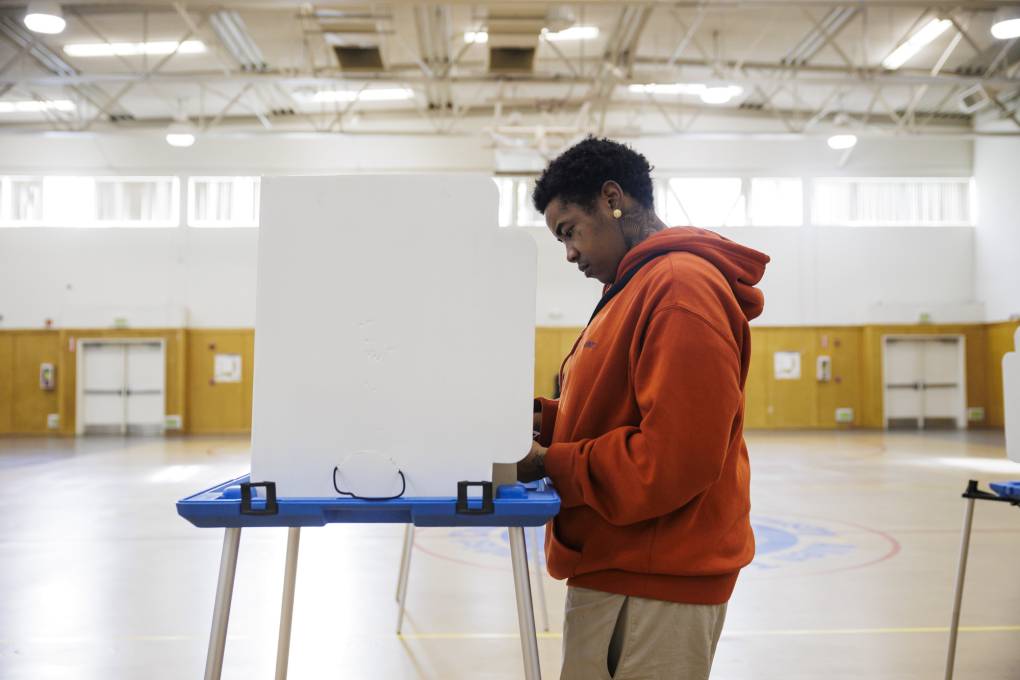
In a 2024 election year that promised historic news, KQED stepped up and delivered unprecedented coverage and context for what was at stake on Bay Area ballots across all its platforms, serving voters with deeply researched, trustworthy and nonpartisan information. From an expanded digital voter guide offered in both English and Spanish to innovative podcasts, in-person events, including a San Francisco mayoral debate, in-depth radio, web articles and social coverage, KQED continued to grow its election service and exemplified the critical importance of public media’s role in democratic discourse.
“This was a historic election with implications not only on a national level, but also locally and statewide,” says Chief Content Officer Holly Kernan. “We responded with our most substantial Voter Guide ever and coverage that helped people understand the stakes of our democratic process.”
The centerpiece of KQED’s election service was the 2024 digital voter guide. KQED has made an election guide an essential part of its service for decades. But for the first time ever, KQED’s 2024 guide featured information on every race on ballots covering each of the nine Bay Area counties KQED serves, making it the most comprehensive Bay Area voter guide — perhaps ever. Created by KQED’s trusted, expert team of political reporters and journalists in collaboration with the digital team, the guide made voting more accessible by bringing thoroughly researched, independent and nonpartisan context to each of the often complex ballot measures and local races, as well as important resources and FAQs about the voting process.
“Our goal was to meet voters wherever they were — on their phones, in their cars or at community events — with the information they needed to make informed decisions,” said Ki Sung, Managing Editor of Digital News.
Around 100 reporters, editors and producers fanned out across the Bay Area to interview candidates and gather documents filed with each county’s elections office. The team then sorted through the material to make the information relevant and easy to use. From September 16 to November 15, 2024, the English-language voter guide received more than 1 million views from nearly 400,000 unique viewers. KQED also produced a Spanish-language version with an emphasis on coverage in San Francisco, Alameda and Santa Clara counties. After polls closed, the digital guides delivered the most up-to-date results for all races.
KQED’s radio and podcast series Political Breakdown, hosted by veteran political journalists Scott Shafer and Marisa Lagos, made a transition from a weekly to a daily format to provide listeners with critical context and analysis throughout the election cycle. The show’s new format allowed KQED to deliver timely insights on breaking political developments, from exclusive interviews with candidates to analysis of crucial policy debates. And on our podcasts Bay Curious and The Bay, we produced 10 in-depth episodes that discussed each of the propositions on California ballots.
Our events program, KQED Live, presented informative in-person voter events. These included Bots vs. Ballots: AI and the 2024 Election, which addressed the impact of artificial intelligence on democracy; the final 2024 San Francisco Mayoral Debate, which featured the city’s five leading mayoral candidates and was broadcast on television, radio and via digital livestream; and Decision 2024: The Race for District 16 Debate, which was presented via livestream by KQED in partnership with NBC Bay Area and Telemundo.
The impact of KQED’s election coverage was felt throughout the Bay Area and beyond. The newsroom’s focus on both high-profile contests and local elections helped citizens understand how their votes would affect their communities directly.
KQED Partners with PBS LearningMedia and the National Writing Project to Elevate Youth Voices
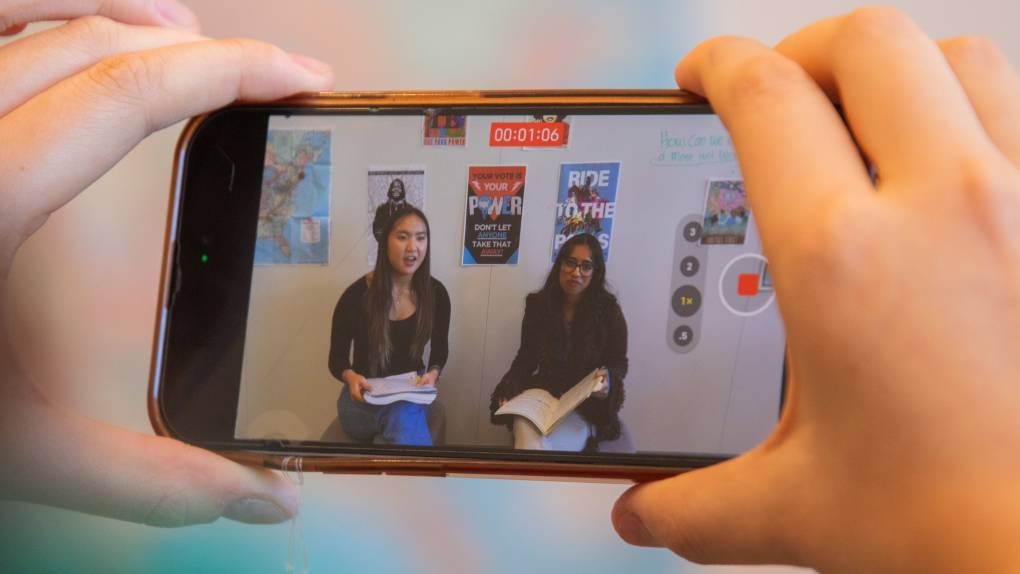
In 2024, using the momentum of the election year, KQED partnered with PBS LearningMedia and the National Writing Project to invite middle and high school students to express their ideas for how to make the world a better place. Classrooms across the nation used the Call for Change Youth Media Challenge project, which takes students step by step through selecting an issue they feel a personal connection to, researching it and writing a script advocating for a solution. Their work culminated in creating an audio or video commentary or an editorial cartoon and publishing their media to the public online showcase hosted by KQED. KQED featured youth media pieces on our website, on our app, in newsletters and on social media and through partner institutions in education and public media.
“KQED has always been the steward of the youth media community,” said Michael Preston, Executive Director of the Joan Ganz Cooney Center at Sesame Workshop, one of the many partners the KQED Education Department works with throughout the year.
Teachers find that connecting students’ passions with an authentic audience outside the classroom increases students’ intrinsic motivation to research carefully and bring their best work forward. To prepare teachers to use Call for Change this election year, KQED offered 15 live workshops online and in person. After one such workshop, a teacher shared that modifying traditional assignments to include audio and video was not only more engaging, but it gave students practice in “becoming members of society who can foster change in class and hopefully their communities.”
Locally, this election-engagement project elicited powerful media pieces from students around the Bay Area on civic issues from teen mental health to reproductive rights, sea-level rise to wildfire management, rent control to sustainable cities. Over the dozen years that we have amplified youth voices on election issues, we have heard how much of an impact KQED has on young people just beginning to discover their civic selves. “It means a lot to me that someone found my project interesting and wanted to hear what I have to say,” one high schooler shared. “I think that it often feels that you can talk to the people who already know what you think, and they already know who you are, and it doesn’t feel like you’re making a difference, but to have your voice amplified is empowering.”
In 2024, the Youth Media Showcase received more than 2,100 student media submissions from 15 states and received more than 70,000 page views. KQED’s education team offered more than 60 professional development sessions for educators, serving more than 3,800 attendees, and partnered with 38 districts, three county offices and seven other stations. To learn more about the impact of KQED’s education work during the 2023–24 school year, check out this report.
Award-Winning KQED Podcast Exposes Corruption and Demands Transparency Inside California’s Most Violent Prison
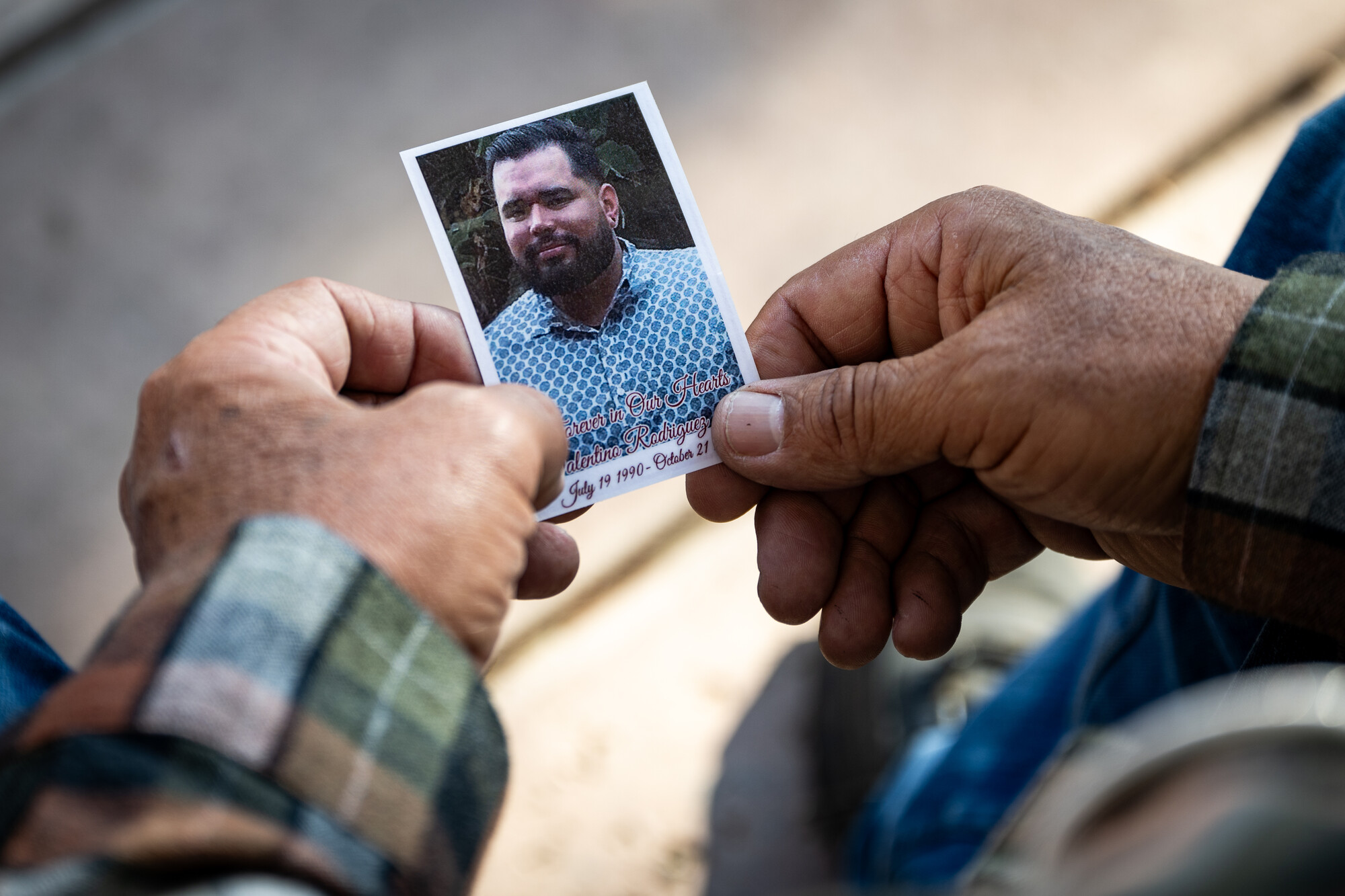
For decades, uses of force and correctional officer misconduct inside the California Department of Corrections and Rehabilitation (CDCR) — a prison system that employs more than 30,000 peace officers — was hidden from the public eye. After the passage of the Right to Know Law (SB 1421) peeled back some of that secrecy beginning in 2019, KQED reporters finally began to get a picture of what was happening inside this closed system.
In February 2024, KQED launched On Our Watch: New Folsom, the second season of its award-winning podcast series. KQED reporters spent more than two years investigating allegations of abuse and corruption in California State Prison Sacramento, colloquially known as New Folsom. Host Sukey Lewis and co-reporter Julie Small interviewed dozens of officers and incarcerated people and pored over thousands of pages of once-secret prison records and hundreds of hours of interrogation tapes. The resulting podcast series lays bare this formerly closed system and documents the disillusionment and despair of two correctional officers who died after standing up for justice. Since the podcast’s launch, it’s garnered more than 1.6 million downloads and 3.4 million social media impressions.
The project’s reporting and exclusive analysis, which was recently published in the data science magazine Significance, found that New Folsom had the highest overall use-of-force rate of any California state prison from 2009 through 2023 and that New Folsom officers used serious force — meaning they either badly injured someone or used deadly force — at a rate three times higher than any other prison in the state. The story also revealed a number that CDCR itself says it does not track: 31 current and former correctional officers took their own lives between 2020 and 2024.
The team heard from many current and former correctional officers, staff, internal affairs agents and a number of former wardens who wrote to thank us for our coverage. “I’ve worked with many people just like Sgt. Steele and Officer Rodriguez. … Thank you for giving them a voice after they are gone,” wrote one man who retired last year from CDCR.
“I just wanted to share that as a retired warden from another state I found this series to be well done and captured the complexity of life inside a prison,” one listener wrote in an email. “Whether you work or live inside the prison, you will not leave without being damaged by the experience.”
The law firm Rosen Bien Galvan and Grunfeld, which has been involved in a class-action lawsuit on behalf of disabled prisoners against CDCR since 1994, cited the podcast in a recent report reviewing staff misconduct allegations.
The series won an SPJ James Madison Freedom of Information Award for Audio Journalism. It has also been used as a teaching tool in law and journalism courses around the country. The podcast’s social media campaign sparked meaningful engagement, as listeners gathered in the comments to voice their compassion, outrage and gratitude.
One commenter wrote, “I’ve listened to this season and the work you’re doing is so important.”
New Digital Video Series Gains Millions of Views and Wins Excellence in Journalism Award
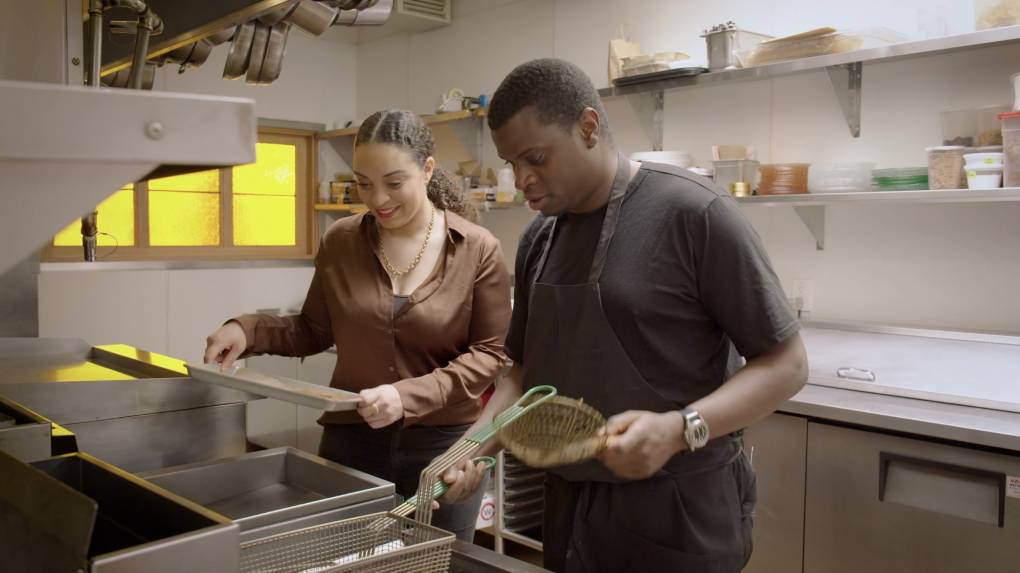
Through culinary expertise and cultural insights, KQED’s first-ever food-history digital video series, Beyond the Menu, shines a spotlight on the individuals and cultures that make the Bay Area a global food hub. By telling the stories of immigrant families preserving traditions, chefs innovating with local ingredients and communities uniting through food, Beyond the Menu has highlighted how food is a powerful vehicle for cultural exchange and understanding. Viewers have shared heartfelt feedback, expressing how the series has deepened their connection to their own heritage or opened their eyes to new cultures and cuisines.
Standout episodes have included an exploration of chamoy that garnered more than 47,000 views on YouTube; a deep dive into the mysterious origins of the Hong Kong pineapple bun; and an investigation into the cultural evolution of chicken and waffles that sparked lively conversations with nearly 28,000 views.
Hosted by Cecilia Phillips, the series debuted in March 2024 and has quickly become a favorite among food lovers and cultural explorers alike. Phillips brings her unique culinary background and perspective while exploring compelling questions, such as who first invented the samosa and how birria tacos became a staple at taquerias all over town.
Each episode tells the story behind beloved dishes, tracing the origins of key ingredients and cooking techniques across continents and centuries. Through engaging storytelling and striking visuals, Beyond the Menu’s digital-first approach has reached more than 2 million views across viewing platforms and social media and attracted audiences across demographics. The series was rewarded with a 2024 SPJ NorCal Excellence in Journalism Award.
Building on this success, KQED is exploring adapting Beyond the Menu into television, developing a TV pilot that combines two popular digital episodes with an original show opening and newly filmed segments to create a full 30-minute program. This innovative approach aims to bring the series’ rich storytelling to an even broader audience through nationwide distribution via public media stations. By bridging the gap between digital and traditional media, Beyond the Menu helps KQED remain a vital resource for both longtime supporters and new, younger audiences.
“This is why I love public television … and will always recommend it,” one viewer commented. “The simplest thing we may take for granted can turn into something that changes the way you see magic and history in what’s around you everyday.”
KQED’s Leadership With the California Newsroom Advances Public Media Statewide
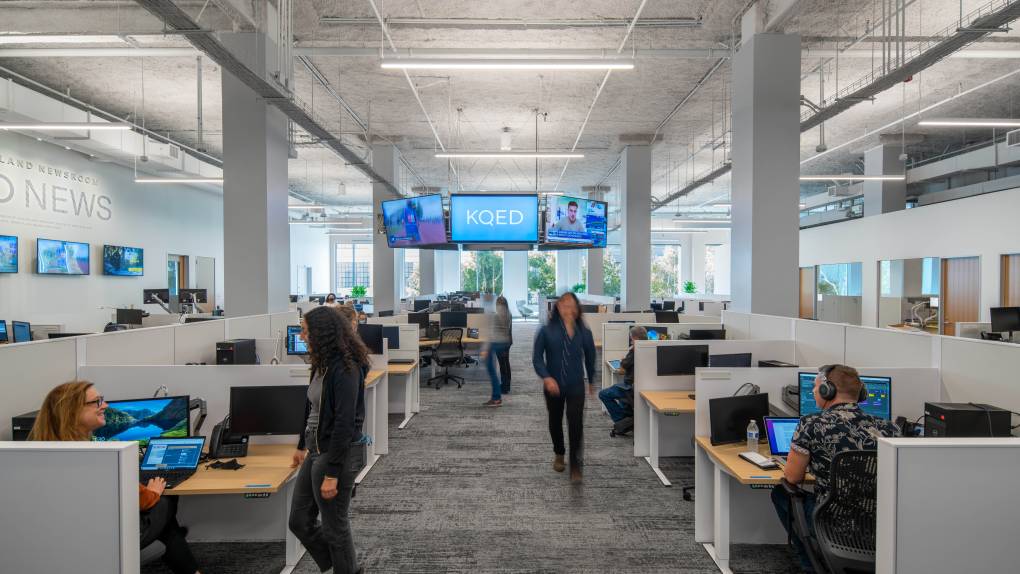
Launched in 2020, the California Newsroom is a KQED-led collaboration designed to strengthen the quality of local news and amplify journalism, including across the state’s so-called “news deserts.” This collaborative effort is a partnership between organizations including CapRadio (Sacramento), LAist (Los Angeles), KCRW (Los Angeles), KPBS (San Diego), CalMatters, NPR and more than a dozen other organizations throughout the state.
The California Newsroom includes Managing Editor Tony Marcano, Senior Investigative Editor Mike Kessler, Data Journalist Emily Zettner, NPR Collaborations Editor Amy Isackson and two editors who specifically provide training. The team primarily supports statewide journalism with mentorship and training for public radio reporters, editors and newsroom managers across California’s public media ecosystem. They do this by helping local newsrooms implement editorial best practices and standards and by offering editorial, project-management and consulting support on news, features and enterprise stories, and on large-scale investigations that expose wrongdoing, corruption, government dysfunction and other matters of public interest. The team also helps by coordinating and editing statewide coverage of breaking news events between large and small NPR member stations and NPR and by assisting with content and resource sharing between outlets.
In 2024, the California Newsroom supported the development of more than 300 radio and digital stories — from breaking news and scoops in Fresno and Santa Rosa to enterprise stories in San Bernardino, from data analysis in Sacramento to investigations that span the state.
Highlights included:
- A 7,500-word digital companion piece, with data visualizations, to KQED’s On Our Watch: New Folsom podcast series.
- A statewide analysis of police use of deadly restraint (co-published with KQED, The Guardian US, LAist, KPBS and CapRadio).
- Accessing salary and financial data for CapRadio in its reporting on financial mismanagement at the station, which the California Newsroom also edited.
- Supporting KAZU (Monterey/Santa Cruz) on how to access police reports and records related to sexual assault accusations against defense secretary nominee Pete Hegseth.
- Continued reporting on a commercial real estate developer who misused more than $100 million in state funds.
- An exposé of a Madera County Supervisor and Fresno police officer who allegedly attempted to blackmail city council members.
Major news outlets such as the Los Angeles Times, San Francisco Chronicle and Fresno Bee have followed coverage that began as California Newsroom projects. After seeing work by the California Newsroom, other outlets, including The Guardian US, Frontline and Open Vallejo, invited the team to collaborate on future projects and events.
California Newsroom-supported projects received numerous awards, including National Edward R. Murrows for Josh Yeager’s (KVPR) “Whitewater Rafting is Roaring Back to Life in California After Years of Drought,” which documented the revival of the rafting industry on the Upper Kern River after a winter of heavy snow; KAZU’s “The Pajaro Flood: A Preventable Disaster,” which documented the devastating impact of the flood, as well as provided listeners with real-time evacuation warnings and disaster relief resources; and KVCR (San Bernardino) Reporter Madison Aument won a Regional Murrow award for a radio feature “Dogs Left Behind by Illegal Marijuana Farmers Terrorize Rural Town in Riverside County.” Aument also won a Regional Murrow, alongside the California Newsroom’s Mike Kessler and KQED’s Molly Solomon, for investigative reporting about a police shooting in San Bernardino. And KQED’s Tyche Hendricks won first place from the San Francisco’s Press Club for continuing coverage for a story Amy Isackson edited, “New Bay Area Immigration Court Opens, Aims to Tackle Deportation Backlog.”
Inaugural PBS Reframe Festival Connects Changemakers and Thought-Leaders in Trailblazing Conversation
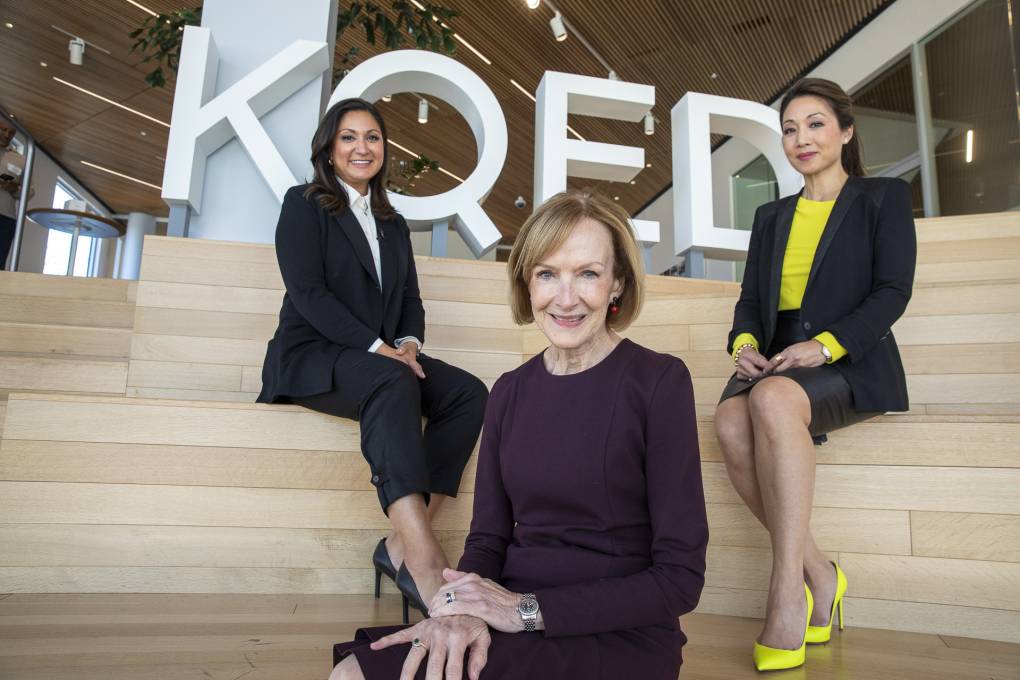
On Saturday, April 20, 2024, KQED partnered with PBS NewsHour to co-present the Reframe Festival, an all-day event at KQED that emphasized the value of reframing perspectives and provided a space where pioneering thought met discerning journalism live onstage.
The festival’s program was a showcase of KQED’s and NewsHour‘s editorial sensibilities. NewsHour co-anchor Amna Nawaz, former anchor and senior correspondent Judy Woodruff and NewsHour West anchor Stephanie Sy engaged with some of California’s most inventive minds and unsung changemakers shaping the national agenda.
Segments explored California’s significant political influence, the wide-reaching impacts of Silicon Valley technologies, leadership in climate resilience, efforts to foster civic trust over polarization and the daring vision of groundbreaking Bay Area artistic leader Tamara Rojo of SF Ballet. Featured guests included OpenAI’s Chief Technology Officer Mira Murati, who addressed Amna Nawaz’s questions about how training data is sourced and revealed an early look at the company’s new generative AI video tool, Sora. Apple executive and former EPA administrator Lisa Jackson spoke about corporate responsibilities at the intersection of racial equity and climate impact, while California’s Tribal Affairs Secretary Christina Snider-Ashtari and a panel of experts later outlined ways that indigenous land stewardship presents models for a greener climate future.
Fresh off reporting in Ukraine, Nawaz shared a behind-the-scenes look at her primetime interview with the country’s embattled President Volodymyr Zelenskyy. Politico’s Melanie Mason joined KQED’s Scott Shafer and Marisa Lagos for a roundtable about California political figures making the day’s headlines. Woodruff brought her ongoing project America at a Crossroads, which explores the nation’s divisions and the people working to heal them, to the stage with an interview of two women working to create Jewish and Muslim solidarity in the face of the war in Palestine. The day concluded with San Francisco Ballet Artistic Director Tamara Rojo joining Stephanie Sy in conversation. Rojo talked about how she is reimagining the classical art form to be more adventurous with a look at her newly commissioned ballet.
Altogether, the Reframe Festival offered an intimate engagement with high-profile California newsmakers in KQED’s The Commons, which was attended by 160 community members. A livestream, which was shared online at KQED.org and a later broadcast of highlights on KQED 9 made the program more widely available to the community. Through its thoughtful discussions, the Reframe Festival presented models of the intellectual humility, empathy, interest in the common good and deftness of imagination to adapt amid accelerating change that are the hallmarks of the Bay Area’s values, KQED’s storytelling and PBS News Hour’s journalistic acumen.
Check, Please! Bay Area Marks Monterey Bay as a Culinary Destination with First-Ever Feature and Exclusive Premiere
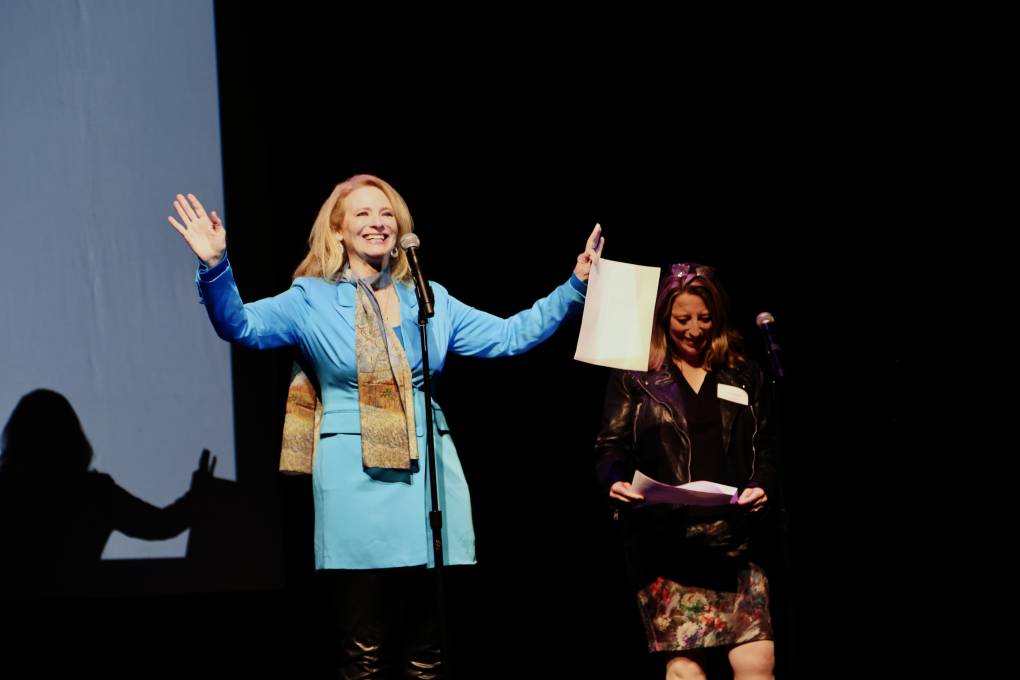
Check, Please! Bay Area, the popular television series that casts ordinary people to dish out reviews of their favorite local Bay Area restaurants, has accomplished a lot since the program debuted on KQED in 2005. But two things it hadn’t done were to take the show beyond the San Francisco Bay Area and to enjoy its own premiere on a large screen. All that changed in April 2024 when Check, Please! Bay Area premiered a series of episodes focused on the vibrant food scene of Monterey Bay in front of an audience.
Each year Check, Please! develops an episode or two focused on a specific theme. Host Leslie Sbrocco fielded a recommendation from fans to take the show to Monterey Bay, a region largely supported by a hospitality industry still recovering from the pandemic. Seeing an opportunity to uplift a community and highlight a region that was close enough for local audiences to experience, the Check, Please! crew packed up their gear and hit the road south on Highway 1.
The 19th season of Check, Please! featured two episodes that covered six family-owned restaurants along the central coast. To celebrate the new episodes, the regional travel bureau, Visit Carmel, sponsored a preview event at the historic Sunset Center in Carmel-by-the-Sea. The program featured an exclusive, free preview of the new episodes with Leslie Sbrocco and the Check, Please! production crew, as well as the restaurant owners, their families and the featured guest critics. About 200 guests learned about the show’s production and enjoyed small bites and wine from showcased restaurants. It was the first preview in the show’s 19-year history and the first time it has been projected on a large screen.
The two episodes received approximately 40,000 views total on YouTube, 30 percent more than the average of the other episodes that season. More importantly, the restaurants reported an uptick in business. Walter Georis of Corkscrew Cafe told us that his restaurant was “slammed” after the premiere. And Wild Fish restaurant owner Liz Jacobs reported, “We never expected such a tsunami of foodies! It has really helped us in this year of economic downturn … We turned away dozens of people. It was complete bedlam in a really good way!”
In total, the season series profiled 57 restaurants and Check, Please!Bay Area also won the Viewers Choice Award for “Best City or Regional Program” in the 15th annual Taste Awards.
Snap Judgment Explores the Human Impact of Capital Punishment
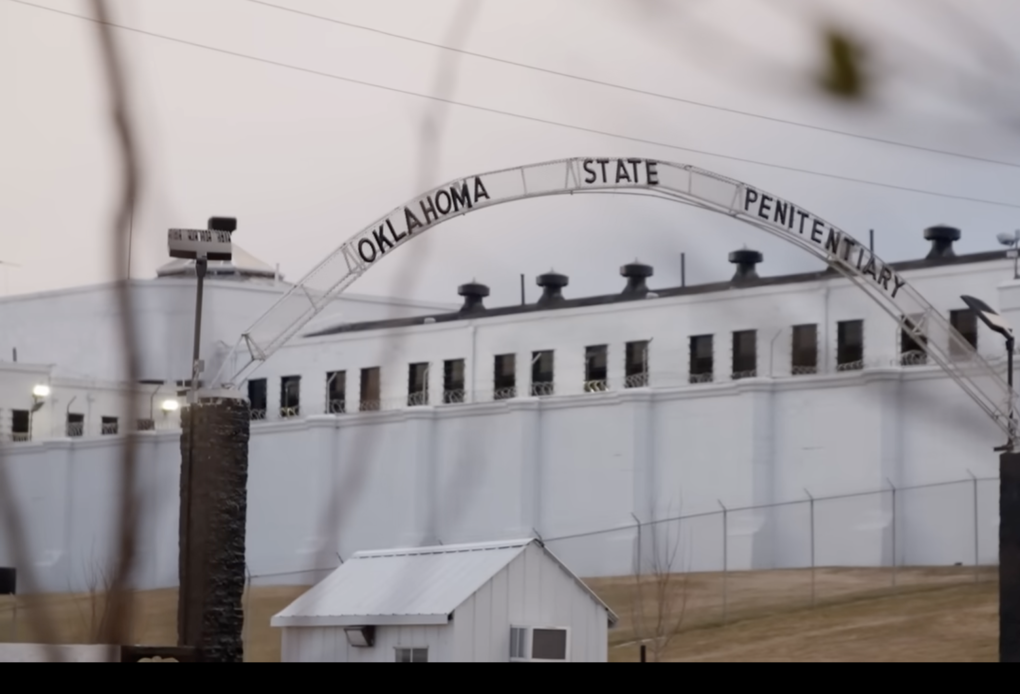
Near the end of his presidency, President Joe Biden commuted the sentences of 37 federal death row inmates, provoking a response from then President-elect Donald Trump that his administration would pursue more executions. To better understand what is at stake in this debate over capital punishment, the radio and podcast series Snap Judgment provides listeners a deeper appreciation for the experiences of death row inmates, their families and loved ones.
Hosted by Glynn Washington, Snap Judgment mixes real stories with music to produce cinematic, dramatic episodes that dare listeners to see the world through the eyes of others. The 2024 episode “Father Forgive Them” explores the reality of capital punishment by focusing on three Oklahoma State Penitentiary death row inmates — Bigler Stouffer, Wade Lay and Donald Grant — as the men move closer toward their executions.
Many death row inmates experience poverty, inadequate legal representation, racial bias or even wrongful convictions. With Snap Judgment’s signature first-person style, the episode allows listeners to consider the socioeconomic and psychological factors that contribute to incarceration. It also fosters empathy and challenges the assumption that all individuals on death row are irredeemable.
Donald Grant’s brother commented, “The reporters spent nearly a year getting to know me and my brother, even traveling with me to Oklahoma to witness his execution, one of the hardest moments in my life. Their sensitivity and patience allowed them to capture Donald as a full, complex person — something I had never seen before — while also laying bare the cruel machinery of the system with accuracy and objectivity.”
Since the story aired, people are reaching out to Snap Judgment, saying it helps them see capital punishment in a completely new light. One listener put it this way: “I had no experience, no ability to stand in these families’ shoes before listening to these stories. These families of death row prisoners are all of us. I am rethinking past perceptions, with a sense of empathy, because of having listened to this.”
Wade Lay has said the project has made him feel less alone. Lay’s defense lawyer told our reporters that she printed a transcript of the podcast to include as part of the court filings for Lay’s competency hearing. Lay was eventually removed from death row.
The series won the Anthem Awards Gold Award for Best Audio as well as the Signal Awards Gold Award for Best Documentary.
Snap Judgment is a production of Snap Studios, which was acquired by KQED in fall 2023. Snap Studios is the producer of the popular series Spooked, which explores hidden stories from myriad cultures and traditions, and Mind Your Own with Lupita Nyong’o, a storytelling podcast series about what it means to belong, all from the African perspective.
New Initiatives Help KQED Engage More Deeply with Latinx Audiences
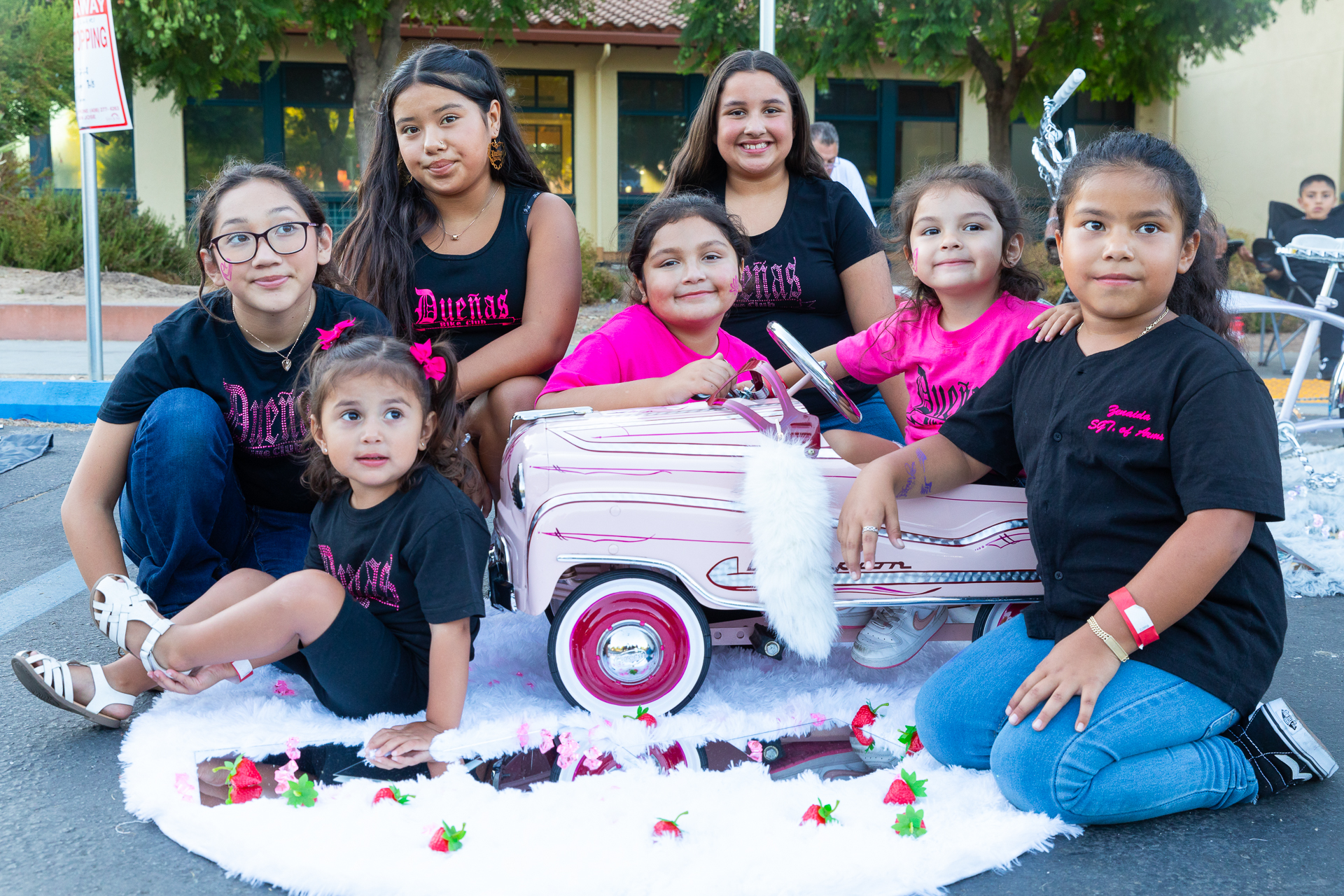
According to 2022 data, roughly 25 percent of the Bay Area population identifies as Latinx, yet they compose a smaller portion of KQED’s overall audience and membership. To help ensure KQED engages more fully with the Bay Area’s population, we launched a cross-departmental initiative that harnesses the station’s award-winning storytelling and journalism, dynamic in-person event programming and community-centered outreach to more intentionally serve our local Latinx communities. In 2024, KQED’s Latinx engagement initiative centered around the creation of a newsletter called K Onda, the development and distribution of KQED’s Spanish-language voter guide and a series of Latinx-themed KQED Live events.
K Onda was launched in April 2024 to elevate the voices of Latinx changemakers and to deliver news and event information of relevance to these communities. Edited by Bianca Torres, the newsletter has a devoted audience of approximately 5,000 subscribers and an engagement rate that exceeds KQED’s other newsletter series. Subscriber Aniela V. commented: “I really appreciated and got excited by K Onda, and the effort to highlight and continue to uplift Latine/x stories.”
One of the most valued features of KQED’s news service is the development of an online voter guide every two years to provide Bay Area audiences with fact-based and nonpartisan information about the various races on local ballots. This year, KQED produced a Spanish-language version of the guide that was reprinted and championed by the Spanish language newspaper El Tecolote. To promote the guide, KQED created printed versions as well as magnets that were shared at community events, including the Paseo Artístico Art Walk in San Francisco and the annual Día de los Muertos Festival in Oakland. Through KQED’s Community Advisory Panel, KQED partnered with 40 community organizations, including The Unity Council, Calle 24 Latino Cultural District and El Tecolote Bilingual Newspaper to distribute the guide.
Additionally, KQED Live’s event program highlighted everyday experiences and heritages of Latinx communities. This included performances of music, dance and comedy as well as food events, such as the ongoing Latinx cabaret series ¿Dónde Esta Mi Gente?; the Carnaval San Francisco King and Queen Dance Competition; the Living Altars event celebrating cross-cultural expressions of mourning and remembrance in Latinx and Filipinx communities; Be My Neighbor Day at Día de los Niños, the long-running celebration of children and books; and Anjitos, a Latinx street foods immersive tasting event. From August 1, 2023, through July 31, 2024, just over 25 percent of all onstage guests identified as Latinx. Meanwhile, Latinx audience members composed more than 13 percent of all attendees during this same period — a five-point increase over the previous year.
Rodrigo Duran, a KQED Community Advisory Panel member and Executive Director of Carnaval San Francisco, said: “I was drawn to KQED because of their approach to community engagement and relationship building in the Mission District. They were intentional and culturally sensitive to the voices and needs of the Latino community and I was proud to partner with them through Carnaval San Francisco.”
KQED Tracks the Explosion of AI and Its Consequences and Pioneers Responsible Practice
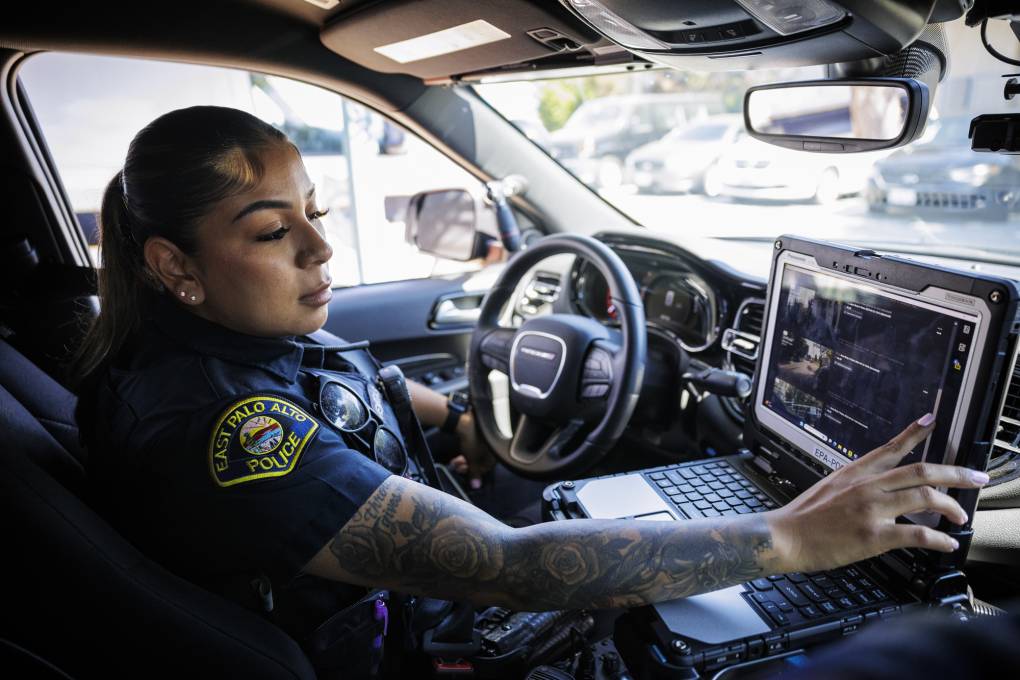
In 2024, KQED increased our coverage of AI and how it’s being adopted by public and private institutions here in the Bay Area while exploring its potential consequences of those applications for our Bay Area communities.
In 2024, the KQED newsroom made a concerted effort to build coverage and interrogation of AI’s impact into all our coverage streams — for instance, in a piece that was picked up by The Guardian, investigative correspondent Sukey Lewis explored how certain police departments such as East Palo Alto’s are using AI technology to convert body cam footage into text for police reports. Rachel Myrow tracked the months-long, up-and-down saga of Senate Bill 1047. Senator Scott Weiner’s bill, which was aimed at regulating the AI industry, was ultimately vetoed by Governor Gavin Newsom. In the weeks leading up to election day 2024, Weiner and Myrow were joined by The Guardian’s Rachel Leingang, Common Cause’s Jonathan Mehta Stein and Encode Justice founder Sneha Revanur in a KQED Live program exploring AI’s potential role as disrupter in the recent election.
KQED also dug into AI’s impact on Bay Area housing. Sydney Johnson explored San Francisco’s efforts to ban AI software used to set rental prices while Joseph Geha revealed how AI is being used to uncover racist deeds in Santa Clara County. Throughout the year, MindShift paid attention to the debates on AI’s utility and risks for classrooms. And we explored generative AI’s disruptive impact on culture making, including documentary filmmaking.
While KQED probes the ways AI is beginning to seep into most areas of modern life, KQED has also been exploring how AI can benefit our journalism and audiences — developing principles and frameworks that emphasize transparency, accuracy and creating uses that serve our mission. In our newsroom, we are thoughtfully implementing AI-powered tools to enhance our workflow — from using audio transcription to streamline production of promotions to developing a Slack bot that helps brainstorm headlines. We’re also examining ways AI could help identify potential bias. Beyond these production tools, we’re developing select projects to imagine new ways to interact with our audiences.
One key example is Ask Forum, an AI-powered tool KQED developed for the KQED Discord channel and community. In 2023 KQED launched a channel on Discord to create engagement between listeners and producers of its flagship live call-in radio program, Forum. Members of the Forum Discord users can explore the program’s extensive archive by asking questions like “When was Jane Goodall on?” “What was today’s show about?” or “Are there any shows about camping in California?” When users receive answers, they’re getting accurate information drawn directly from actual Forum content, not AI-generated interpretations.
Our choice of Discord reflects our commitment to meeting audiences in new digital spaces. The platform enables real-time conversations where Discord members don’t just consume content — they help shape it, offering insights that guide our digital evolution. Building on this spirit of collaboration, transparency remains central to how KQED implements AI tools such as Ask Forum. We believe maintaining trust means being clear about when and how AI is being used in the search and discovery process. This commitment to openness has strengthened our community relationships while establishing a model for responsible AI use in journalism. Audience feedback doesn’t just improve the tool; it forms our entire approach to engagement, helping us understand how AI can best serve our community’s needs.
These projects represent more than technological innovations — they’re models for how public media can thoughtfully integrate AI while staying true to its core mission. By adhering to principles that include clear transparency, rigorous accuracy standards and targeted applications that enhance rather than replace human expertise, these initiatives demonstrate how AI can strengthen the relationship between KQED and its audience.
Northern California Emmy® Awards: Science/Technology
“Deep Look: This Weevil Has Puppet Vibes But Drills Like a Power Tool”: KQED, Craig Rosa, Series Producer; Gabriela V. Quirós, Coordinating Producer; Rosa Tuirán, Producer/Writer/Cinematographer/Editor; Laura Klivans, Writer/Narrator; Joshua Cassidy, Cinematographer; Mimi Schiffman, Post-Production Coordinator; Kia Simon, Editor/Motion Graphics; Teodros Hailye, Animation; Seth Samuel, Composer; Shirley Gutierrez, Sound Mixer
Northern California Emmy® Awards: Science/Technology
“Deep Look: This Fly Torpedoes a Bindweed Bee’s Nest”: KQED Craig Rosa, Series Producer; Gabriela V. Quirós, Producer/Writer/Editor; Laura Klivans, Writer/Narrator; Joshua Cassidy, Cinematographer; Mimi Schiffman, Post-Production Coordinator; Kia Simon, Editor/Motion Graphics/Animation; Seth Samuel, Composer; Shirley Gutierrez, Sound Mixer
2024 SPJ James Madison Freedom of Information Award — Audio Journalism
“On Our Watch, Season 2”: Sukey Lewis and Julie Small
2024 SPJ NorCal Excellence in Journalism: Feature Reporting
“This All-Women Mariachi Group From Sacramento Is Redefining the Genre,” The TCR Mag Arts & Culture: Sasha Khokha, Victoria Mauleón, Suzie Racho, Bianca Taylor and Brendan Willard, reporting
2024 SPJ NorCal Excellence in Journalism Awards: Feature Reporting — Arts & Culture Video
“Beyond the Menu” on Hong Kong-style pineapple buns, chamoy and Rocky Road ice cream: Myles Bess, Derek Lartaud and Manjula Varghese
2024 NorCal Excellence in Journalism: Breaking News (radio/audio/podcast):
Billy Cruz, Alex Emslie, Ted Goldberg, Marisa Lagos, Sydney Johnson, David Marks, Guy Marzorati, Scott Shafer, Tara Siler, Molly Solomon, Joe Fitzgerald Rodriguez and Brian Watti of KQED for their coverage of the death of Sen. Dianne Feinstein.
2024 NorCal Excellence in Journalism: Community Journalism (print/online large division):
Alex Gonzalez, Nisa Khan, Beth LaBerge, Marissa Leshnov, Carly Severn and Darren Tu of KQED for their coverage of queer artists and activists speaking out for Palestinians and advocating in their community
2024 NorCal Excellence in Journalism: Explanatory Journalism (radio/audio/podcast large division):
Teresa Cotsirilos, Sasha Khokha, Suzie Racho and Brendan Willard of KQED in collaboration with the Food and Environment Reporting Network for “California’s Nüümü People Claim LA Stole Their Water, Now They’re Fighting for Its Return.”
Signal Awards: Gold Award for Best Documentary
“Father Forgive Them” episode, Snap Judgment: Snap Studios
Anthem Awards: Gold Award for Best Audio
“Father Forgive Them” episode, Snap Judgment: Snap Studios
2024 SPJ NorCal Excellence in Journalism: Features Journalism (radio/audio/podcast large division):
Azul Dahlstrom-Eckman and Alexander Gonzalez of KQED for “Bay Area’s ‘Fix-It’ Culture Thrives Amid State’s Forthcoming Right-to-Repair Law.”
2024 SPJ NorCal Excellence in Journalism Awards: Feature Reporting — Interview Category (radio/audio/podcast):
“Hope and Loss in Gaza: A Bay Area Doctor Reflects on His Aid Mission”: The Bay, Dana Cronin, Maria Esquinca and Alan Montecillo
2024 SPJ NorCal Excellence in Journalism Awards: Longform Storytelling (radio/audio/podcast series):
Erin Baldassari, Adhiti Bandlamudi, Erika Kelly, Laura Klivans, Vanessa Rancaño, Ezra David Romero, Kevin Stark and Danielle Venton of KQED for episodes from the third season of Sold Out: Rethinking Housing in America, which examines the intersection of the climate and housing crises, including stories on flooding, heat waves and wildfires.
2024 SPJ NorCal Excellence in Journalism Awards: Ongoing Coverage (radio/audio/podcast):
Adhiti Bandlamudi of KQED for reporting on the California Forever proposal, fallout among locals and campaign practices.
Champions of Curiosity Awards: “Most Creative All-Around Engagement”
KQED’s Radio News Quiz: Michael Black and Sarah Sawyer, announcers; Devin Holt and Robert Marceda, producers
Regional Edward R. Murrow Awards: Best News Documentary Reporting
SOLD OUT reporting about climate impacts on the unhoused communities of the Central Valley: Vanessa Rancaño, reporting
Regional Edward R. Murrow Awards: Best Investigative Reporting
“Documenting the San Bernardino Police Department’s History of Alleged Uses of Excessive Force”: Molly Solomon, Senior Investigative Editor Mike Kessler and KVCR’s Madison Aument, reporting
Regional Edward R. Murrow Awards: Best Newscasts and News Coverage
“Reporting on November 16, the day the A’s officially finalized their likely move to Las Vegas”; “Protestors shut down the Bay Bridge for several hours”; “The jury reached a verdict in the Depape case”: KQED Staff
San Francisco Press Club: Series or Continuing Coverage First Place
“New Bay Area Immigration Court Opens, Aims to Tackle Deportation Backlog”: Angela Corral, Ericka Cruz-Guevarra, Tyche Hendricks, Amy Isackson and Alan Montecillo
KQED Productions, Products and Presentations
KQED LOCALLY BROADCAST TELEVISION PRODUCTIONS
KQED NATIONALLY BROADCAST TELEVISION PRODUCTIONS, CO-PRODUCTIONS AND PRESENTATIONS
KQED PUBLIC RADIO PRODUCTIONS
KQED DIGITAL VIDEO PRODUCTIONS
KQED PODCAST PRODUCTIONS
SNAP STUDIOS AUDIO PRODUCTIONS
Writers and Contributors
Director of Marketing & External Communications, Peter Cavagnaro
Senior Editor, Elyce Berrigan
Designer, Sophie Feller
Creative Director, Zaldy Serrano
*Cover photo by Beth LaBerge (KQED).
